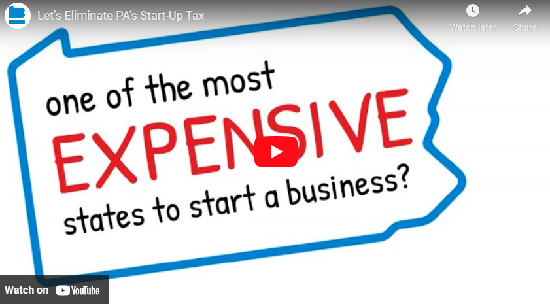The PA Chamber recently spearheaded Net Operating Loss tax reform as part of the FY 2024-25 state budget – a major win that will help businesses locate, invest, and hire in Pennsylvania. This victory will make Pennsylvania more competitive and marks an important first step toward improving the treatment of NOLs for all businesses in the commonwealth.
What Are NOLs?
NOL carryforward is a tax provision that lets businesses take losses they incurred during a taxable year and “carry them forward” into future tax years, where they can be deducted from future profits to reduce an employer’s overall tax liability.
This provision enables companies to continue reinvesting in their business and people. It is especially important for two types of employers in our state:
- Start-up firms, especially those in technology or biosciences, which often face significant losses in their early years.
- Cyclical businesses such as manufacturers in commodity markets like metals, chemicals, or paper, where profits and losses can vary widely.
Prior to the passage of this year’s budget, Pennsylvania was tied for last place among all 50 states for its punitive treatment of NOLs. With only a 40 percent deduction allowance (half of the federal rate), Pennsylvania had effectively imposed a special tax on startups that is nonexistent in 48 other U.S. states.
Enhancing Pennsylvania’s Tax Climate
Improving NOL deductions is the key to fostering a fairer tax system by reducing additional burdens on entrepreneurial risks and cyclical businesses. By aligning with the federal standards on NOLS, Pennsylvania will be able to:
- Promote future growth: Encourage long-term investments and hiring.
- Provide stability: Help businesses plan with confidence.
- Attract employers and entrepreneurs: Make Pennsylvania a more competitive and appealing location for employers.
Collaboration and Advocacy
 The PA Chamber has been at the forefront of advocating for NOL reform and the elimination of Pennsylvania’s Start-Up Tax.
The PA Chamber has been at the forefront of advocating for NOL reform and the elimination of Pennsylvania’s Start-Up Tax.
As budget negotiations ramped up, we led a coalition of 73 local chambers of commerce from across Pennsylvania calling on Gov. Josh Shapiro and state lawmakers to eliminate the state’s tax penalty on start-up businesses.
Our NOL advocacy efforts have also garnered widespread media attention:
- Pennsylvania lawmakers, groups urge change to Net Operating Loss (Bloomberg Tax)
- ‘Status quo’ protects 48th in the nation business tax rule (The Center Square)
- lawmakers want end to 40% NOL cap to attract biz (Law360)
- Tired of losing to ‘frigging Ohio,’ PA lawmakers propose pro-business tax policy (Delaware Valley Journal)
- For PA businesses and legislators, NOL takes on new meaning – No Opportunities Lost (CPBJ)
- pols seek tax code change to recruit startups, help industry (CNHI)
- Red tape to green light: Pennsylvania leaders seek tax reform for startups (Broad + Liberty)
Key Reforms in the 2024-25 State Budget
Fortunately, Pennsylvania’s 2024-25 state budget eliminates the Start-Up Tax by prospectively improving the tax treatment of NOLs.
Specifically, the state’s 40 percent deduction cap will be increased for NOLs generated in the 2025 tax year (and beyond) to 50 percent in 2026, then 60 percent in the year following, until it reaches parity with the federal rules (80 percent) in the year 2029.
The budget also continues the phasedown of the Corporate Net Income Tax, which will be further reduced from the current 8.49 percent rate to 7.99 percent in 2025.
Partnering with Lawmakers
The PA Chamber has worked closely with state lawmakers, including Sen. Greg Rothman (R-Cumberland) and Senate leaders Ward, Pittman, and Scott Martin (R-Lancaster), as well as a bipartisan group of allies that also includes Sen. Ryan Aument (R-Lancaster), Sen. Nick Miller (D-Lehigh), Rep. Paul Friel (D-Chester) and Rep. Josh Kail (R-Beaver) to enact these reforms.
We look forward to continuing this work with lawmakers, including efforts to improve the treatment of existing NOLs for Pennsylvania businesses that invested in the Commonwealth despite a challenging tax climate.